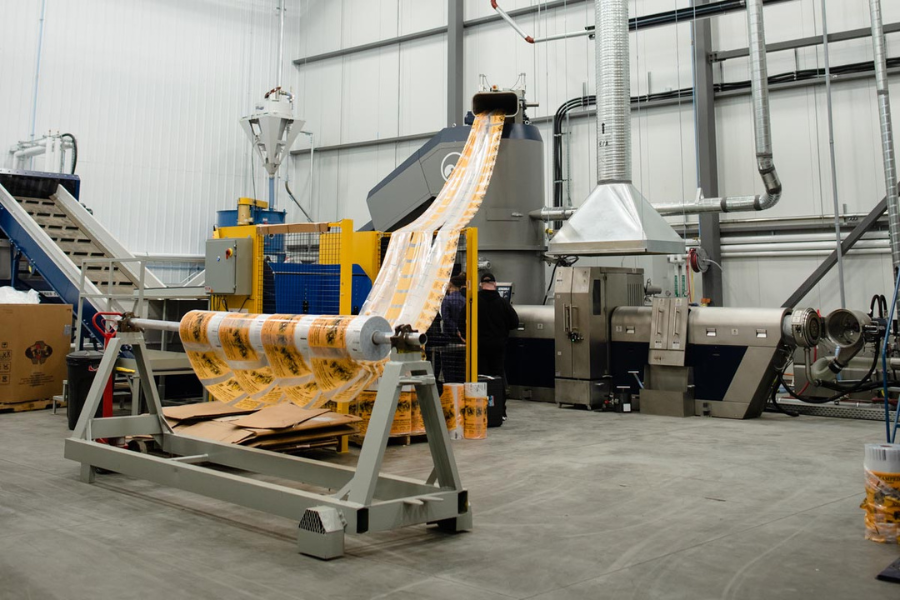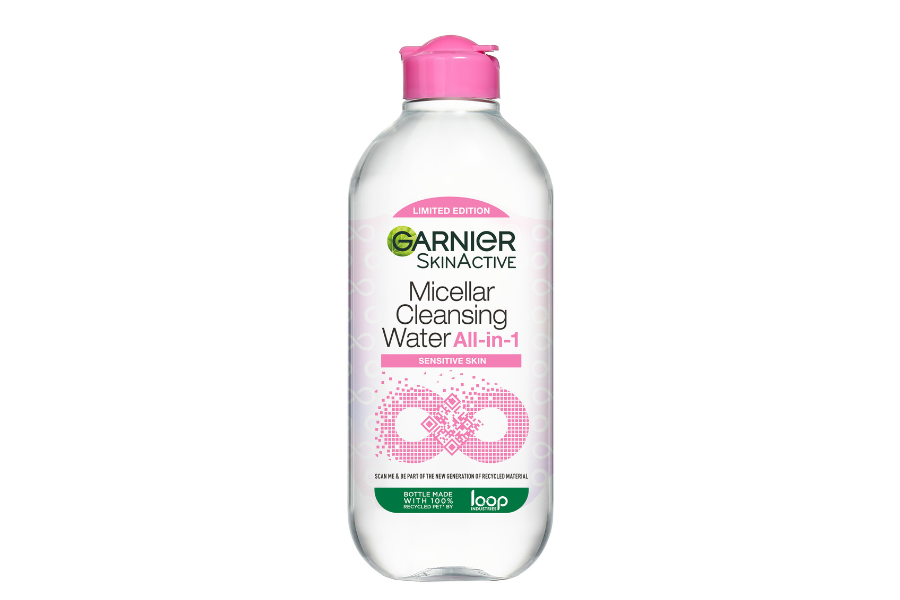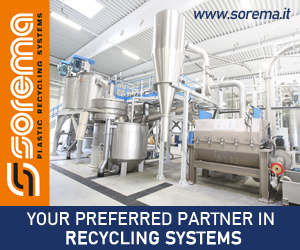
Throughout Europe and North America, researchers and chemical companies are making strides in recycling technology. | Courtesy of Polykar
A research institute developed a recycled plastic deodorizing process, and a packaging maker installed a system for recycling heavily printed LDPE film scrap. The following are details on those and other recent technology-related announcements:
Deodorizing technology: A German research institute has developed a method of using pressurized water to deodorize recycled plastics. According to Phys.org, the Fraunhofer Institute for Structural Durability and System Reliability LBF developed the process to remove odors from HDPE packaging, then it employed infrared spectroscopy and mass spectrometry to measure how much of a tracer fragrance was removed, thus quantifying the method’s effectiveness. The story notes that the method, which has been employed at lab scale, also removed contaminants and short-chain HDPE.

Chemically recycled PET bottle: Beauty products brand Garnier announced a 100% RPET bottle made with plastic that was chemically recycled through Loop Industries’ depolymerization process. Garnier used the recycled resin in a Micellar Cleansing Water All-in-1 bottle. The bottle will start landing on shelves this month in the U.S. and France. Based in Terrebonne, Quebec, Loop uses a low-heat, no-pressure technology to break down PET scrap into monomers, which can be used to make new PET.
Closed-loop automotive plastics recycling: Several companies have collaborated to chemically recycle automotive scrap plastics from auto shredder residue (ASR). Chemical company Eastman announced on April 19 the completion of a closed-loop project involving Eastman, the United States Automotive Materials Partnership LLC (USAMP), automotive recycler PADNOS and global automotive interior supplier Yanfeng. Through the project, PADNOS supplied a plastic-rich fraction of ASR to Eastman, which used its carbon renewal technology to convert the material into synthesis gas, which was then used to produce polyester and cellulosic thermoplastics. The resins were further formulated and sent to Yanfeng, which molded the plastic into auto parts that met Ford, GM and Stellantis requirements, a press release stated.
Extrusion system installation: Canadian packaging maker Polykar purchased an EREMA system to recycle heavily printed LDPE production scrap from blown film production. In a press release, EREMA noted that the company purchased an INTAREMA 1310 TVEplus with backflush filter, with the system coming on-line in December 2022 at Polykar’s new 50,000-square-foot Edmonton, Alberta plant. The system can produce up to 4,000 tons of pellets a year.



